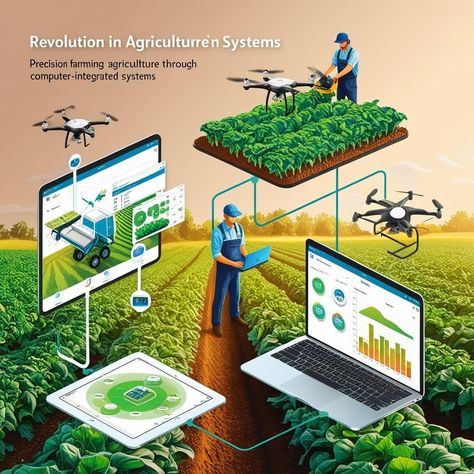Top 10 Organic Farming in Atlanta

- Admin
- April 3, 2025
- Agriculture & Farming
Top 10 Organic Farming in Atlanta
Agriculture thrives in Atlanta, a bustling city that blends urban sophistication with a deep-rooted connection to the land. The rise of organic farming has transformed the local landscape, providing residents with sustainable, healthy food options while supporting eco-friendly practices. In this blog, we dive into the Top 10 Organic Farming in Atlanta City, spotlighting businesses that excel in Agriculture Services Atlanta, supply Farming Equipment Suppliers in Atlanta, and contribute to the vibrant Farmers Markets in Atlanta. From Organic Farms in Atlanta to Hydroponic Farms in Atlanta, these farms showcase innovation and dedication. We’ll also explore related services like Irrigation Solutions Atlanta, Agricultural Cooperatives Atlanta, and Soil Testing Laboratories in Atlanta, painting a full picture of Atlanta’s organic farming ecosystem as of April 3, 2025.
Exploring Atlanta’s Organic Farming Scene
Atlanta’s organic farming community stands out for its commitment to sustainability and quality. These farms not only grow fresh produce but also support a network of Agricultural Consultants in Atlanta, Greenhouse Suppliers in Atlanta, and Seed Distributors in Atlanta. Whether you’re seeking Dairy Farms in Atlanta, Poultry Farms in Atlanta, or Livestock Suppliers in Atlanta, the city offers a diverse range of organic options. The integration of modern techniques like Vertical Farming Solutions Atlanta and traditional methods ensures Atlanta remains a hub for agricultural innovation. Let’s explore three key aspects of this thriving sector.
Atlanta’s Leading Organic Farms
Atlanta hosts a variety of Organic Farms in Atlanta that prioritize natural growing methods. These farms work closely with Agricultural Machinery Providers in Atlanta to enhance efficiency while maintaining organic standards. For instance, Patchwork City Farms, led by Jamila Norman, grows seasonal vegetables and herbs without synthetic chemicals, serving local Farmers Markets in Atlanta. Similarly, Hydroponic Farms in Atlanta like those supported by ServeScape deliver fresh greens using water-based systems, reducing soil dependency. Agrochemical Suppliers in Atlanta also play a role by offering organic-approved pest control, ensuring crops remain pure. This synergy between traditional and cutting-edge farming keeps Atlanta’s organic scene robust.
Support Systems for Organic Farming
Organic farming in Atlanta thrives thanks to a strong support network. Agriculture Services Atlanta provides farmers with resources like Farm Equipment Rentals Atlanta and Crop Production Services Atlanta, making it easier to scale operations. Soil Testing Laboratories in Atlanta analyze land health, guiding farmers on organic fertilizer use from Organic Fertilizer Suppliers in Atlanta. Meanwhile, Irrigation Solutions Atlanta ensures water efficiency, critical for Dairy Farms in Atlanta and Poultry Farms in Atlanta. Agricultural Cooperatives Atlanta unite farmers, offering shared resources and market access, while Grain Storage Facilities in Atlanta preserve harvests, supporting year-round supply.
Economic and Community Impact
Organic farming boosts Atlanta’s economy and community spirit. Agricultural Export Companies in Atlanta ship local produce globally, while Agri-Tourism Businesses in Atlanta attract visitors to experience farm life. Beekeeping Farms in Atlanta and Aquaculture Farms in Atlanta diversify offerings, with honey and fish enhancing Farmers Markets Atlanta. Landscaping Services Atlanta and Timber Suppliers in Atlanta complement farming by maintaining green spaces and providing materials. Animal Feed Manufacturers in Atlanta supply organic feed, supporting Livestock Suppliers in Atlanta. This interconnected system, backed by Agricultural Research Centers in Atlanta, fosters innovation and sustainability, enriching both the city and its residents.
Detailed Insights into Atlanta’s Top 10 Organic Farms
Atlanta’s organic farming leaders blend tradition with technology, serving as models for sustainable agriculture. Below, we spotlight the Top 10 Organic Farming in Atlanta City, highlighting their unique contributions and how they leverage local resources like Forestry Management Services Atlanta and Organic Fertilizer Suppliers in Atlanta.
Patchwork City Farms
Patchwork City Farms, founded by Jamila Norman, operates a 1.2-acre urban farm in Oakland City. Certified Naturally Grown, it produces vegetables, fruits, and herbs for local markets. With around 10 employees, it partners with Seed Distributors in Atlanta for quality seeds and uses Irrigation Solutions Atlanta for sustainable water use. Headquarters: Atlanta, GA. Customer support: Available via their website. Major products: Seasonal produce. Financial insights: Operates independently with cooperative revenue.
ServeScape
ServeScape, started by Mario Cambardella, connects local growers with consumers through an e-commerce platform. Employing 12 professionals, it supports Hydroponic Farms in Atlanta and offers plants from 25 horticultural farms. Headquarters: Atlanta, GA. Customer support: Online contact form. Products: Live plants, landscaping services. Financials: Launched in 2020, showing steady growth.
Good Agriculture
Good Agriculture empowers regenerative farmers with business tools, focusing on finance and marketing. With a small team of 5, it uses AI to streamline operations. Headquarters: Atlanta, GA. Customer support: Email-based. Services: Farm management software. Financials: Pre-seed funded, growing 20% monthly.
WUNDERgrubs
WUNDERgrubs innovates by farming organic insects for food and fertilizers, employing IoT technology. With 8 employees, it collaborates with Greenhouse Suppliers in Atlanta. Headquarters: Atlanta, GA. Customer support: Website inquiries. Products: Insect-based foods, fertilizers. Financials: Early-stage, sustainability-focused.
Grubbly Farms
Grubbly Farms produces sustainable pet feed from insects, supporting Poultry Farms in Atlanta. It employs 15 people and works with Animal Feed Manufacturers in Atlanta. Headquarters: Atlanta, GA. Customer support: Online chat. Products: Chicken feed, pet snacks. Financials: Privately funded, expanding market reach.
Second Century AG
Second Century AG grows industrial hemp for CBD oil, leveraging Agricultural Consultants Atlanta. With 10 employees, it uses Farm Equipment Rentals Atlanta. Headquarters: Atlanta, GA. Customer support: Phone available. Products: CBD oil. Financials: Profitable, hemp-focused.
Farmwave.io
Farmwave.io offers AI-driven farming solutions, aiding Crop Production Services Atlanta. Its 20 employees work with Agricultural Machinery Providers in Atlanta. Headquarters: Atlanta, GA. Customer support: Email support. Products: AI farming tools. Financials: Growing through tech adoption.
Flourish Software
Flourish Software provides cloud-based solutions for cannabis farms, including Organic Farms in Atlanta. With 25 employees, it integrates with Soil Testing Laboratories in Atlanta. Headquarters: Atlanta, GA. Customer support: Live chat. Services: Cultivation software. Financials: Strong B2B revenue.
GrowMesh
GrowMesh develops vertical hydroponic systems, enhancing Vertical Farming Solutions Atlanta. Its 10-person team uses Irrigation Solutions Atlanta. Headquarters: Atlanta, GA. Customer support: Online form. Products: Hydroponic sleeves. Financials: Patent-pending, early revenue stage.
Small Bites Adventure Club
Small Bites Adventure Club educates kids on organic eating, partnering with Beekeeping Farms in Atlanta. With 5 employees, it supports Agri-Tourism Businesses in Atlanta. Headquarters: Atlanta, GA. Customer support: Email. Services: Educational programs. Financials: Nonprofit model, grant-funded.
FAQs: TOP 10 Organic Farming in Atlanta City
What is organic farming?
Organic farming is an agricultural method that emphasizes the use of natural processes and inputs, avoiding synthetic fertilizers, pesticides, and genetically modified organisms (GMOs).
Why is organic farming important?
It promotes environmental sustainability, enhances soil fertility, supports biodiversity, and reduces pollution from synthetic chemicals.
How does organic farming benefit the environment?
Organic farming practices improve soil and water quality, reduce pollution, and conserve biodiversity by avoiding synthetic inputs and emphasizing ecological balance.
Are organic foods more nutritious than conventional foods?
While some studies suggest that organic foods may have higher micronutrient content, the differences are generally minimal.
What does 'certified organic' mean?
It indicates that a farm or product has met specific standards set by certifying bodies, ensuring adherence to organic farming practices.
Can organic farms use any pesticides?
Yes, but only natural or non-synthetic pesticides are permitted, and their use is strictly regulated.
Is organic farming more labor-intensive than conventional farming?
Yes, organic farming often requires more labor due to practices like manual weeding and diverse crop rotations.
Do organic farms produce lower yields compared to conventional farms?
Initially, yields may be lower, but over time, organic systems can achieve comparable yields, especially under drought conditions.
How does organic farming impact soil health?
It enhances soil structure and fertility through practices like composting, cover cropping, and crop rotation.
Are GMOs allowed in organic farming?
No, the use of genetically modified organisms is prohibited in organic farming.
Why is organic food often more expensive?
Organic farming is more labor and management-intensive, and organic farmers don't receive federal subsidies like conventional farmers, reflecting the true cost of growing.
How does organic farming conserve water?
Organic practices improve soil organic matter, enhancing water retention and reducing the need for irrigation.
What is crop rotation, and why is it used in organic farming?
Crop rotation involves alternating the types of crops grown on a piece of land to improve soil health and reduce pest and disease buildup.
How does organic farming support biodiversity?
By avoiding synthetic chemicals and fostering diverse plantings, organic farms provide habitats for various species, promoting ecological balance.
What are cover crops, and how are they used in organic farming?
Cover crops are plants grown to protect and enrich the soil during off-seasons, preventing erosion and improving fertility.
Can organic farming help mitigate climate change?
Yes, by sequestering carbon in the soil and reducing greenhouse gas emissions associated with synthetic inputs.
What is composting, and why is it important in organic farming?
Composting is the process of recycling organic matter into nutrient-rich soil amendments, enhancing soil fertility and structure
The Featured Listings
Questions & Answers – Find What
You Need, Instantly!
How can I update my business listing?
Is it free to manage my business listing?
How long does it take for my updates to reflect?
Why is it important to keep my listing updated?



